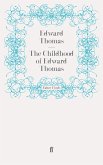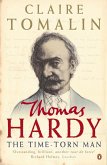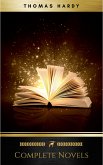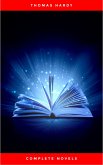Thomas Wyatt (1503?-1542) was the first modern voice in English poetry. 'Chieftain' of a 'new company of courtly makers', he brought the Italian poetic Renaissance to England, but he was also revered as prophet-poet of the Reformation. His poetry holds a mirror to the secret, capricious world of Henry VIII's court, and alludes darkly to events which it might be death to describe. In the Tower, twice, Wyatt was betrayed and betrayer.
This remarkably original biography is more - and less - than a Life, for Wyatt is so often elusive, in flight, like his Petrarchan lover, into the 'heart's forest'. Rather, it is an evocation of Wyatt among his friends, and his enemies, at princely courts in England, Italy, France and Spain, or alone in contemplative retreat. Following the sources - often new discoveries, from many archives - as far as they lead, Susan Brigden seeks Wyatt in his 'diverseness', and explores his seeming confessions of love and faith and politics. Supposed, at the time and since, to be the lover of Anne Boleyn, he was also the devoted 'slave' of Katherine of Aragon. Aspiring to honesty, he was driven to secrets and lies, and forced to live with the moral and mortal consequences of his shifting allegiances. As ambassador to Emperor Charles V, he enjoyed favour, but his embassy turned to nightmare when the Pope called for a crusade against the English King and sent the Inquisition against Wyatt. At Henry VIII's court, where only silence brought safety, Wyatt played the idealized lover, but also tried to speak truth to power.
Wyatt's life, lived so restlessly and intensely, provides a way to examine a deep questioning at the beginning of the Renaissance and Reformation in England. Above all, this new biography is attuned to Wyatt's dissonant voice and broken lyre, the paradox within him of inwardness and the will to 'make plain' his heart, all of which make him exceptionally difficult to know - and fascinating to explore.
This remarkably original biography is more - and less - than a Life, for Wyatt is so often elusive, in flight, like his Petrarchan lover, into the 'heart's forest'. Rather, it is an evocation of Wyatt among his friends, and his enemies, at princely courts in England, Italy, France and Spain, or alone in contemplative retreat. Following the sources - often new discoveries, from many archives - as far as they lead, Susan Brigden seeks Wyatt in his 'diverseness', and explores his seeming confessions of love and faith and politics. Supposed, at the time and since, to be the lover of Anne Boleyn, he was also the devoted 'slave' of Katherine of Aragon. Aspiring to honesty, he was driven to secrets and lies, and forced to live with the moral and mortal consequences of his shifting allegiances. As ambassador to Emperor Charles V, he enjoyed favour, but his embassy turned to nightmare when the Pope called for a crusade against the English King and sent the Inquisition against Wyatt. At Henry VIII's court, where only silence brought safety, Wyatt played the idealized lover, but also tried to speak truth to power.
Wyatt's life, lived so restlessly and intensely, provides a way to examine a deep questioning at the beginning of the Renaissance and Reformation in England. Above all, this new biography is attuned to Wyatt's dissonant voice and broken lyre, the paradox within him of inwardness and the will to 'make plain' his heart, all of which make him exceptionally difficult to know - and fascinating to explore.
Dieser Download kann aus rechtlichen Gründen nur mit Rechnungsadresse in A, B, BG, CY, CZ, D, DK, EW, E, FIN, F, GR, H, IRL, I, LT, L, LR, M, NL, PL, P, R, S, SLO, SK ausgeliefert werden.









